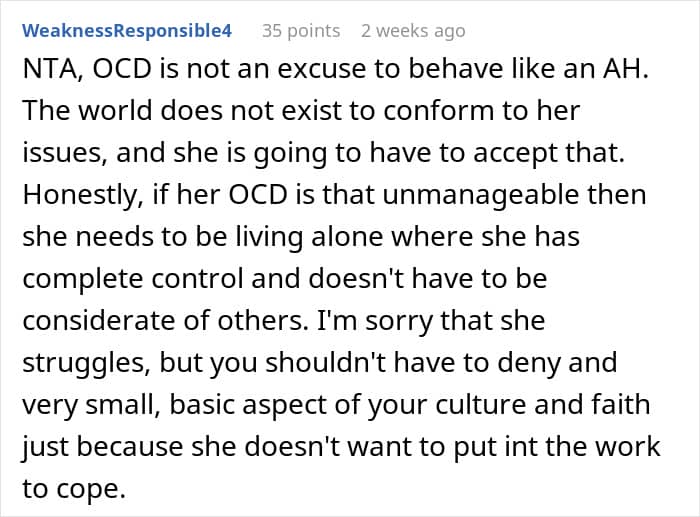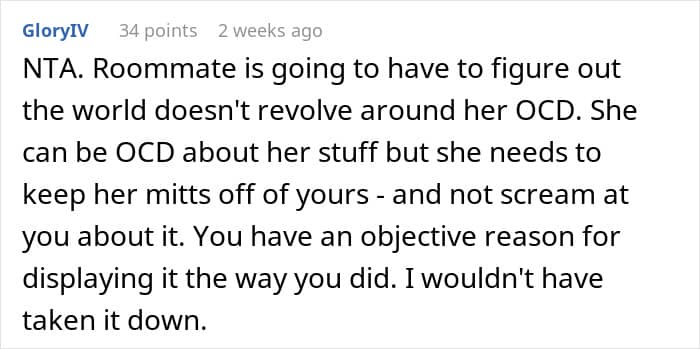If you’re living with other people, it’s in your best interest to get along with them. Otherwise, your home might feel more like a prison. Reddit user Remote-Jello-967, a Jewish woman in her 40s, shared how a simple religious tradition turned into an unexpected source of conflict. She wanted to put up a mezuzah—a small case with a scroll that’s customarily mounted by the front door—and while her roommate initially agreed, after she saw it tilted on the wall (instead of straight), things escalated fast.
RELATED:
This woman wanted to add a small sign of her faith by the door, but her roommate couldn’t bear it
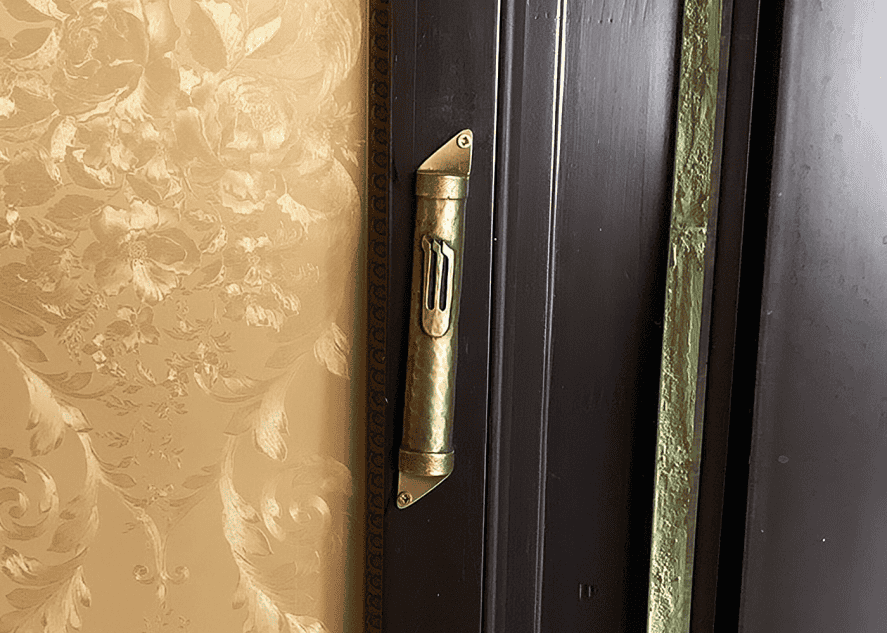
Image credits: We (not the actual photo)
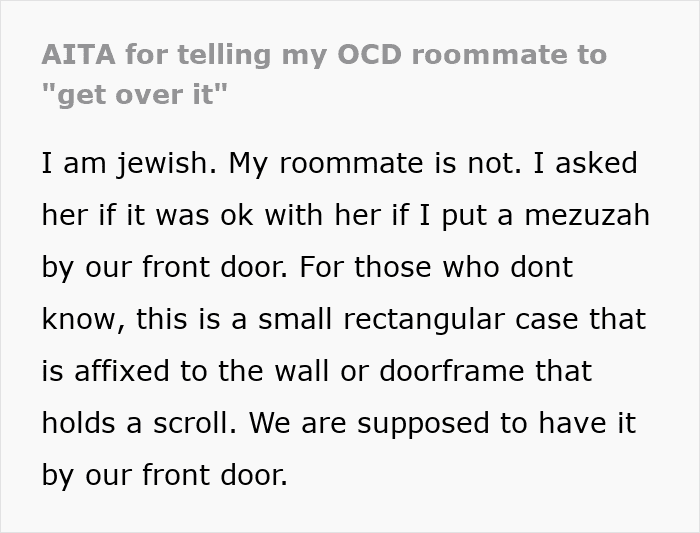



Image credits: alpakavideo (not the actual photo)



Image credits: Remote-Jello-967
OCD can make your life difficult or even miserable, but there are ways to fight it
Obsessive-compulsive disorder (OCD) is a condition in which you have frequent unwanted thoughts and sensations (obsessions), which can lead you to perform repetitive behaviors (compulsions).
For example, someone might be overly fearful of getting contaminated by germs, so to ease their anxiety, they wash their hands over and over again, even when they’re sore and chapped.
Whether you are aware of your obsessions and compulsions or not, they can take up a great deal of time, reduce your quality of life, and get in the way of your daily routines and responsibilities.
Symmetry OCD in particular centers around the desire for balance and order. It might involve needing to arrange items “just right” or feeling like both sides of the body have to move the same way.
It’s difficult to judge the Redditor’s roommate without fully understanding her case, but if she’s being honest, at least some sympathy is warranted. These aren’t simply habits or preferences we’re talking about—they’re responses to deep discomfort that won’t ease up until the compulsion is performed.
It’s not uncommon for people with symmetry OCD to recognize that these patterns don’t make logical sense, but they are still driven to repeat them.
According to research, symmetry OCD is relatively widespread. A 2021 study of a thousand people with OCD showed that about 86.8% of them had symmetry-related symptoms.
Frequent obsessions in symmetry OCD include:
strong urges to make things symmetrical or aligneddiscomfort or anxiety when something feels “off” or “not right”fear that something bad will happen if things aren’t balancedintrusive thoughts about numbers, shapes, or spatial arrangements
Frequent compulsions in symmetry OCD can be:
arranging or aligning objects until they feel “perfect”touching or tapping things an equal number of times or with both handsstepping or walking in certain patterns (e.g., retracing steps or balancing movements)mentally reviewing or redoing tasks to create a sense of balancecounting or repeating words or phrases in symmetrical patterns
Treatment for symmetry OCD is the same as for other OCD subtypes: the most effective approaches typically include therapy and medication; however, they need time to have a therapeutic effect, and not everyone responds the same way.
As her story went viral, the woman provided more context


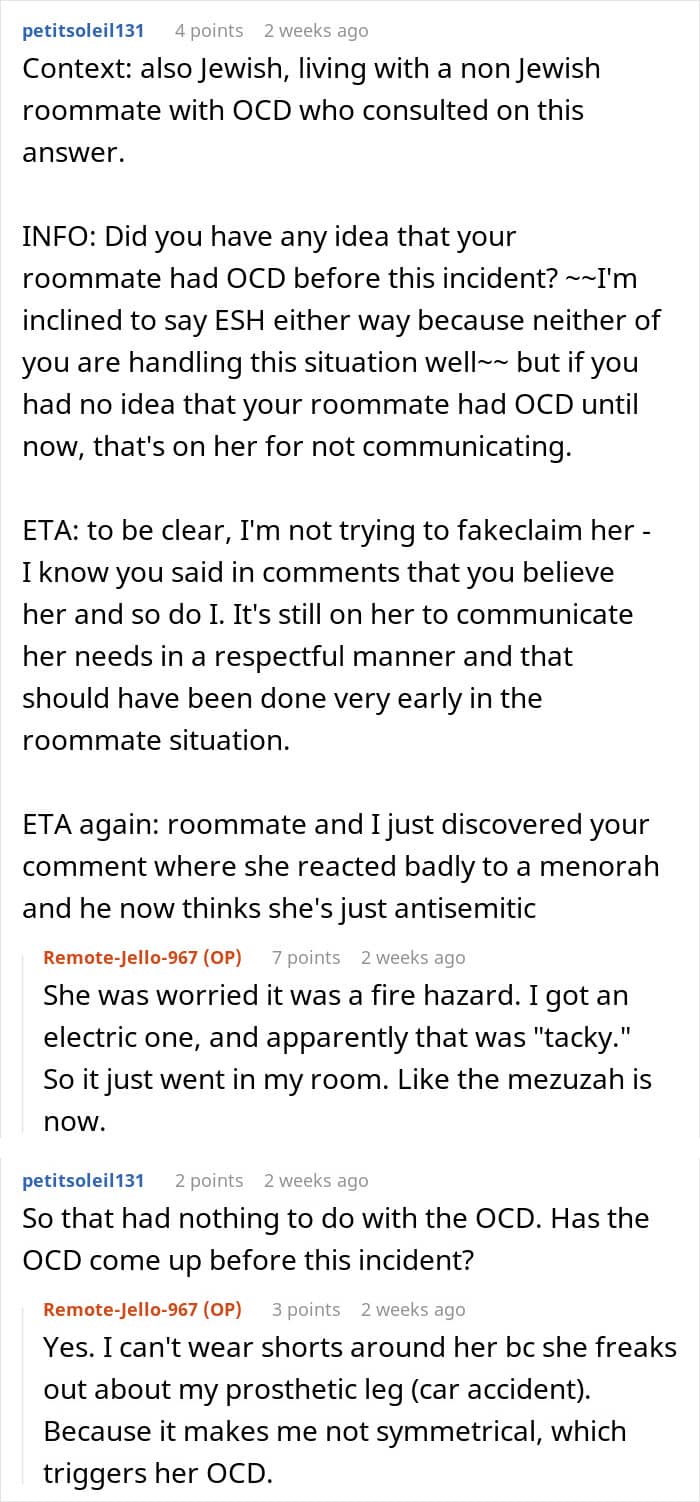




Most people said the woman did nothing wrong




















